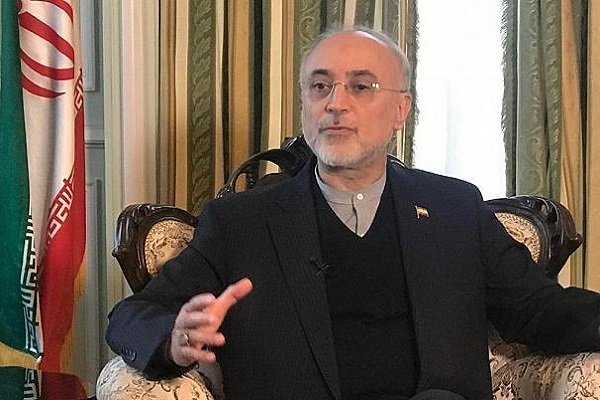Second Bushehr nuclear plant foundation laying to begin early August

TEHRAN – Iran will begin to implement the foundation-laying phase at the second Bushehr nuclear power plant in early August, head of the Atomic Energy Organization of Iran announced on Friday.
Ali Akbar Salehi said that if the construction goes as planned, the power plant will be ready to go on grid in six years.
The third Bushehr power plant will be ready in eight years, he added.
According to the official, the first Bushehr power plant currently provides for 2.7 percent of Iran’s electricity output.
The Russian-built 1,000-megawatt nuclear power plant in Bushehr, southern Iran, started operating in 2011 and reached its full capacity the following year.
In 2014, Russia signed a cooperation contract with Iran to help build the second and third Bushehr reactors, which are scheduled for launch in 2024 and 2026, respectively.
Salehi also commented on the re-construction of the Arak heavy water nuclear reactor.
China and Britain, two parties to the 2015 nuclear deal, have expressed their willingness to reconstruct the Arak reactor and Russia has undertaken the conversion of an enrichment facility in Fordow.
“The designing of the various parts of the new reactor in Arak, including the conceptual, comprehensive, and detailed designs as well as the blueprints, have been completed, and now that the dimensions of the equipment have been calculated, orders have been placed for them and they are being made ready,” Salehi explained.
He added, “The reconstruction of the Arak reactor, carried out in cooperation with China and Britain, is making good progress.”
According to the nuclear deal, officially known as the Joint Comprehensive Plan of Action (JCPOA), Iran agreed to redesign the 40-megawatt research reactor, located in the central Markazi Province, to cut its potential output of plutonium.
Under the accord, China and the United States were tasked to redesign the Arak reactor. However, the fate of the deal has been put in doubt since May 2018, when the Trump administration pulled out the U.S. from the agreement and reinstated the anti-Iran sanctions that had been lifted under the JCPOA.
Bowing to Washington’s pressure, Europe has been throwing only verbal support behind the agreement ever since, refusing to guarantee the Islamic Republic’s business interests in the face of American bans despite being contractually obliged to do so.
On July 3, President Hassan Rouhani said the Arak heavy water nuclear reactor, would resume its previous activities if the other signatories to the deal failed to uphold their end of the bargain.
The remaining parties to the nuclear deal are China, Russia, Germany, France and Britain.
According to IRNA, nuclear spokesman Behrouz Kamalvandi announced on July 22 that if the redesigning of the reactor is slowed down Iran will revitalize the old reactor.
SP/PA
Leave a Comment